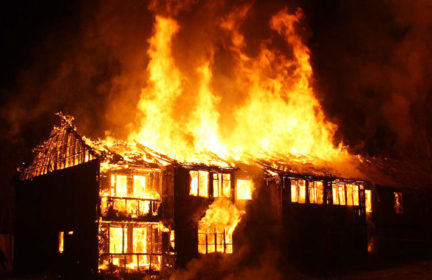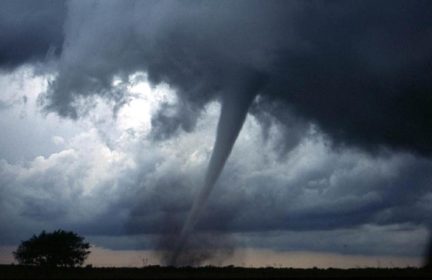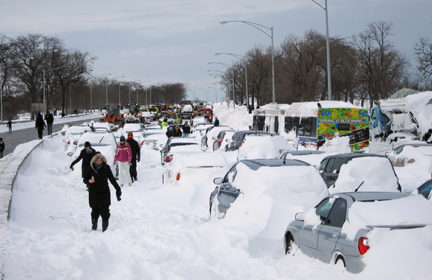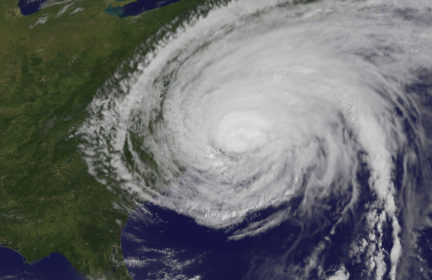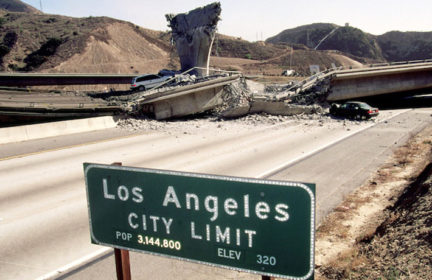How to prepare for the crazy weird weather we are experiencing
Can we have a discussion on the crazy weather of late please ,BUT not on its causes, just how we can possibly prepare for it.
I’ve seen storms, droughts, blizzards, hurricanes etc, but come on guys, in the US Tornadoes lasting for HOURS and staying on the ground for 200 miles is something else.
In the UK 95MPH Winter storms tearing down the UK from the NORTH, Both events almost unherd of before this year
The SIZE and FEROCITY of some of the WILDFIRES on the US West coast, The INCREASE in the number of major storms, the VERY prolongued droughts in places where only moderate droughts are the norm.
I watched Met office guys in both countries recently looking utterly dazed and confused by these very unusual events.
I think the prep community needs to have itself a conversation about what possible changes, adaptations and increased investments in our preps we need to undertake.
-
Comments (9)
-
hikermor - December 11, 2021
Basically it is very simple – prepare for more extreme events than you have seen in the past…
In my case, prepare for more extreme fires than in the past. Be ready to bug out quicker and more efficiently. Take measures to fire proof your residence. Be aware of potential fire situations.
We live in earthquake country, the other grave potential disaster. At least those apparently are not increasing in frequency, at least not yet…..
So ya gotta be prepared. What else is new??
-
Bill Masen - December 11, 2021
After the very prolonged ice storm I realised that the increasing severity of these weather events I needed to greatly increase the amount of heating fuel I need (propane and firewood) But I was lax and only made a token effort. After these two later events I’m taking things a lot more seriously. I normally keep 4 or 5 SEVEN KG bottles of butane but as I get through them I’m going to swap them out for FIFTEEN KG bottles. And looking at last weeks Storm Arwen a type of storm I’ve never experienced before ( 90MPH plus winds from the North) which totally trashed million of trees up here I realise now I need to look at some heavier tools for clearing fallen Timber. My little electric chainsaw just would be pretty ineffective if we had a repeat of Arwen.
I hope your Quakes remain as tremors 🙂
-
-
Pops - December 11, 2021
Yeah, Bill, record cold in AK and the entire arctic as the vortex is super tight… almost 80º below Fahrenheit! We’re in SW MO and had tornado watches and some T-storms but nothing bad last night. Sending good thoughts east.
When we bugged out of CA 20 years ago, anticipating bad stuff, I did lots of research and settled on the Ozarks (SW Missouri) because the forecast here was for warmer winters and somewhat warmer but wetter summers, a 200 day growing season, 40-50 inches of rain and low population. The downside is the variability, GW makes everywhere more variable but the center of the country was variable to start and is only getting more so: it was 72º yesterday, 32º last night (F).
I’m self employed, work from anywhere I can get the internet, so I am more mobile than most. As well our horizon is shortening (to put a happy face on it LOL) we’ll only be around a couple or three decades. For younger folks the best thing I can say is do your diligence! If you are in a bad place, move! Society is not going to change in time, once the impacts affect the economy it will likely be too late to get out.
It is gonna be bad everywhere but some places will be worse. I love the Sierra Nevada Mountains, I grew up there. But they are dying. The west is drying up and burning up and the population in many places make them a deathtrap without cheap fossil fuels. I don’t know if we can transition to renewables fast enough to keep all that investment from becoming worse than worthless.
But that goes out here in the middle as well. Increasingly variable weather will in cause increasing crop failures and even small food plots will be compromised because late/early frost is as deadly as drought to many crops.
My crystal ball doesn’t get very good reception regarding the future and many times I interpret things wrong but our society has borrowed more money annually than our economy has grown for 30 years—growth is an illusion. Those chickens will come home eventually. Likely at about the same time the tab for wrecking the planet comes due through increasing weather disasters deplete our economic resilience…. and, just as the cherry on top, the supply of too-cheap-to-meter fossil energy begins to shrink.
So what to do. Here’s what I have done:
- Get out of the system, live on the edges, diversify income, be resilient.
- Know what weather effects are likely in your area, prep for those. If you can’t prep, move.
- Own some land so you won’t be a refugee.
I would buy grass east of the tree line in current zone 4- 6 (US, east of a north/south line through Kansas City and north of a line through Joplin). I’m shy so I don’t like very populated areas and this is where it starts to get more populated so there is a trade off, but there are a higher concentration of small towns remaining there now than in the west. A small town with a train line nearby is beneficial.
A small plot of grass is hard to make a living on but easy to grow a ton of food on. Plant lots of native grasses and trees/shrubs and things native further south that will survive, they will be your future. Plant a diversity of grasses and forbs and some plots of off-season cool or warm as the case may be.
Economics, weather, and energy are the things to prep for, a BOB won’t do you much good unless you use it early.
-
Robert LarsonContributor - December 11, 2021
Pops- While many of us can’t get out of the system and don’t have the flexibility like you can, (very jealous by the way) I think we all wish we could. And there are some things you can do to be more resilient if you can’t be 100% independent.
I like the idea of getting out of the system. Invest in power generation like solar, collect water from a well or the sky, heat and cook with wood, and things like that. The more we can not rely on the grid, the better we can be when the grid gets knocked out. We’ve seen that a ton the past few years where people don’t have utilities for multiple days.
-
Robert LarsonContributor - December 11, 2021
It seems like every new event is “Record breaking” like you said. Size, intensity, duration, and frequency all seem to be increasing more than previous generations have experienced.
Here’s my response and what I would recommend based off of your question of what can we do?:
- Figure out what disasters have plagued your city, county, and state. No use prepping for wild fires if there’s never been a wild fire within your county in the past 100 years. But as we have seen, things do change and it is a possibility in the future. But rather focus your efforts on the most likely situations first.
- Get your basics out of the way to bug in (food, water, heat, power, cash), and then make a solid bug out bag.
- Look again at the risks of your area and look at the worst case scenarios of that disaster in the past. For example if you live in Louisiana read up on Hurricane Katrina in 2005. Say to yourself “If I was in the heart of a storm that hit my house with the ferocity that Katrina did, what would I do?” Watch old news clips, read interviews and articles, and learn as much as you can about those events. Prepare accordingly. (just like pops said in his comment here)
- Once you have learned about and prepared for the worst case scenario, do a bit beyond that. Because like we discussed, things seem to only be getting worse. I wouldn’t be surprised if in the next 20 years or so we have a hurricane worse and more damaging than Katrina. (like bill mentioned in another comment here, he usually stores X amount of fuel, but is increasing beyond that)
Do your best and be proud of that. You are probably going to be better off than 95% of people.
-
Bill Masen - December 11, 2021
Looks like WEST Coast USA is in for a few interesting days as well, Very heavy snowfall and rain even reaching into SOCAL according to some news sources, possibly 8 to 10 feet in the PNW
-
Barb LeeContributor - December 11, 2021
Bill, The snow, as it is falling in western Oregon, is a godsend because it is all in the higher elevations where snowmelt becomes the lowland lifeblood. We almost can’t get enough snow in the mountains. Almost invariably, we experience “atmospheric rivers” in the winter: warm, subtropical moisture-dense storms that tend to wash away a lot of our snowpack. There is no snow threat at the moment to the heavily populated lowlands of western Oregon, that area which is “fenced off” from the east side of the state by the Cascade Range. We are maritime, even temperate rainforest; the central and eastern parts of the state are largely desert and have been suffering from extreme drought for years.
We are supposed to get 1-2″ of rain between today and tomorrow. That’s not extraordinary, except if it was washing snow away instead of dumping it. If it’s 2″ in the valley, you can bet it’s 12″ in the Cascades, which snag the eastward charging clouds and wring most of the moisture out of them. Then we can get some pretty devastating flooding.
Wind was our big nuisance today, with gusts peaking around 40mph, but generally much less than that.
So this is something of an “ordinary” prelude to winter for our area.
My understanding for Washington though, our immediate neighbor to the north, as well as BC are thought to be expecting a lot more mischief from La Nina this winter. That’s been proven to be true so far I think.
-
Bill Masen - December 11, 2021
Its only December and this winter is going to be one very interesting season.
-
brekke - December 12, 2021
It was definitely a blustery, wet day yesterday here in the valley. We had to travel into the coast range and let’s just say I was happy for a shielded undercarriage on our suv as I may have ran over larger branches than are typically advised. Lol. Lots of field flooding in the typical low-lying areas, but nice to see after the drought this year. I was surprised at the number of these fields that have been converted to grape vines. I know wine is a growing industry here, but it surprised me to see the known flood plains planted with them. Maybe they are more resilient than I thought?
One thing we will be doing this year to prep for the dangers in our area is spreading our preps to more locations. If we’re forced to leave our primary home due to wildfire, we want our secondary location to have the same level of preps there.
-
-
- News of the Week 2024-12-30 - 2 weeks ago
- (Official discussion) Rainy day funds and cash on hand - 4 weeks ago
- News for the Week 2024-11-18 - 4 weeks ago
- How to sew and repair a leather glove - 2 months ago
- Moooooooo…Can you rec a powdered milk? - 2 months ago
This forum is heavily moderated to keep things valuable to as many people as possible. Full community policies are here. The basics:
- 1. Be nice to each other.
- 2. Stay focused on prepping.
- 3. Avoid politics, religion, and other arguments.
- 4. No unfounded conspiracies, fake news, etc.
- 5. Debate ideas, not people.
